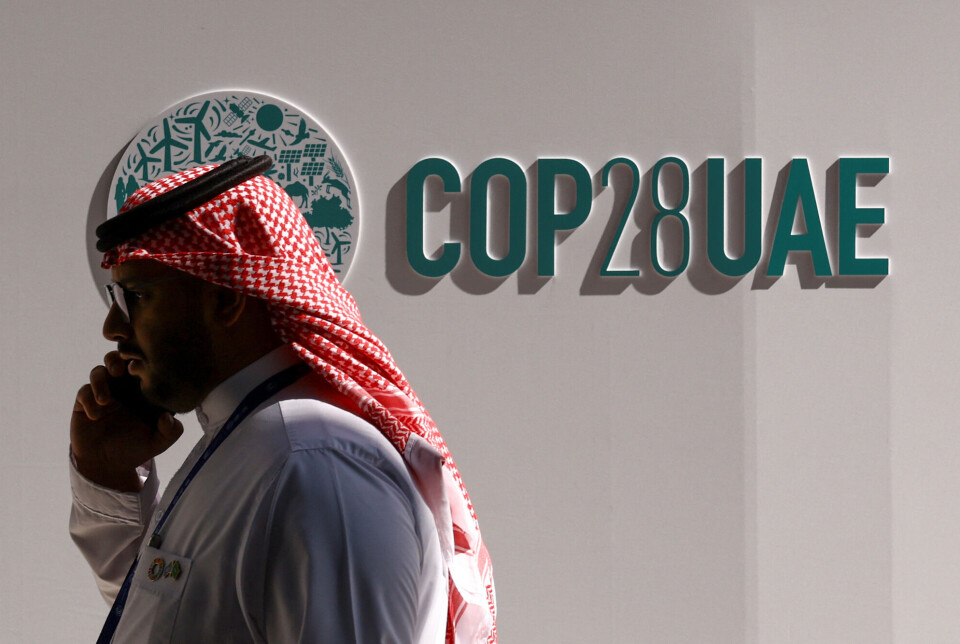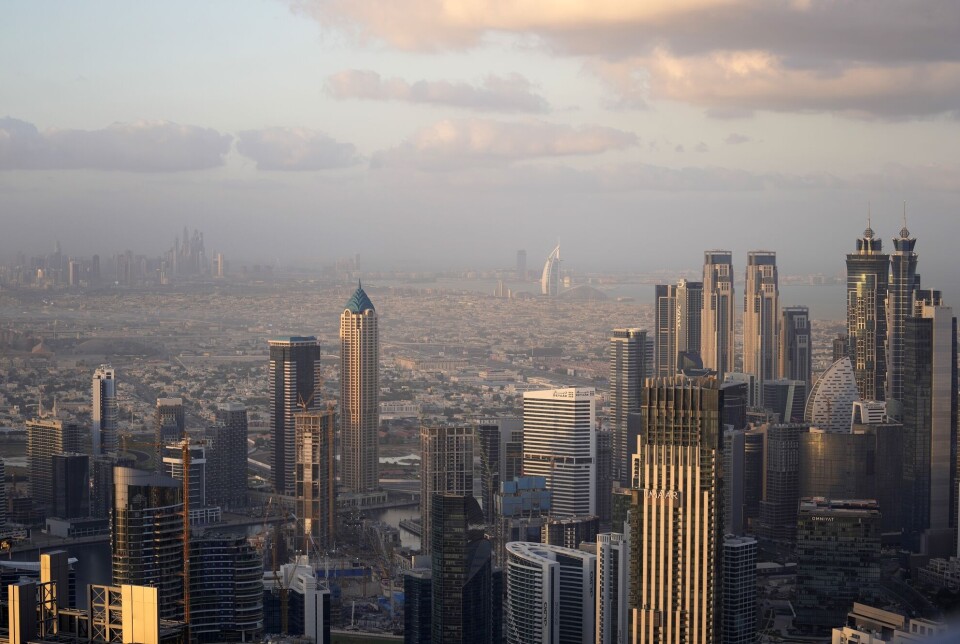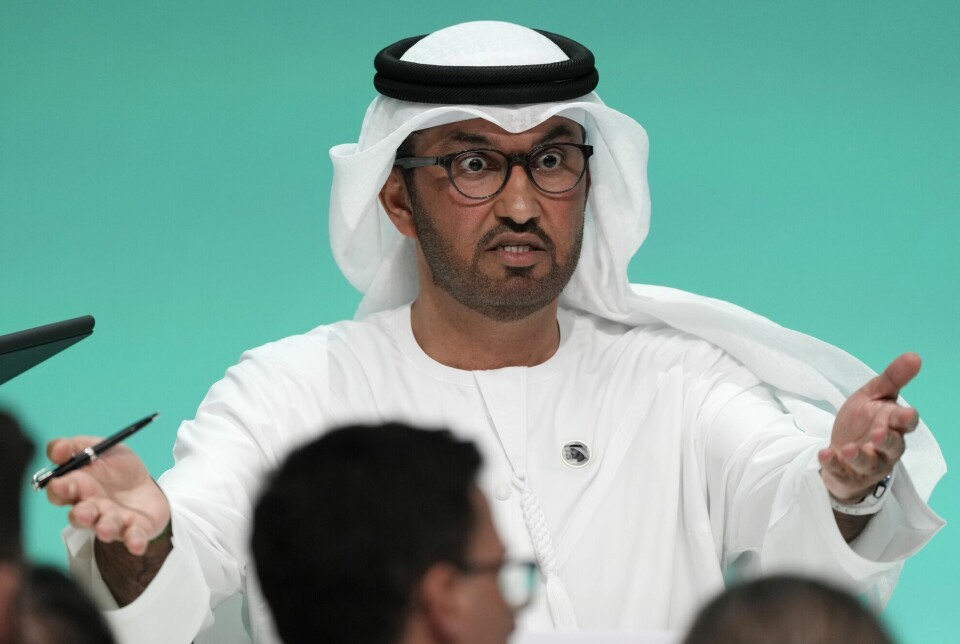
What you need to know about the climate summit in Dubai
The negotiations over the next few weeks will determine how we are going to handle climate change going forward.
The COP28 climate summit has already started in Dubai. From November 30 to December 12, representatives from countries around the world will meet to reach an agreement on what measures are necessary to achieve the climate goals.
Simply put, but it's not that simple.
The 198 participating nations are all politically different and are affected by climate changes in different ways. There are also big differences in how wealthy they are, and behind the negotiations, there are major conflicts and years of history.
This makes negotiations more difficult. Researcher Erlend André Hermansen at CICERO - Center for International Climate Research can provide some simplified answers to big questions, which hopefully makes it a bit easier to follow during the climate negotiations.
1 What is important this year?
At COP28, a lot will focus on how far we have come since the Paris Agreement in 2015. Hermansen says that the global stocktake will be important for this year's negotiations. But what does that mean?
The global stocktake became a key topic when nations reached a consensus on the Paris Agreement in 2015 Leading up to this agreement, each country was expected to present preliminary commitments towards the formation of the Paris Agreement. However, it was acknowledged that these commitments from various nations would fall short of meeting the set global objectives.
“It involves progressively intensifying efforts every five years. We know that what has been put on the table is not enough. Therefore, we must continually tighten the screws. Global stocktake is a key mechanism in this,” Hermansen explains.
The goal of the global stocktake is to collect information from all participating countries. The information is used to understand how far the world has come in achieving the goals set in 2015. That’s the first part of the process.
The second part is a technical phase. Here, all the information is put into context. From this, a report is created. This report lays the groundwork for the political part. This report is what will be discussed during the negotiations.
“This is the most important agenda item at this year's climate summit. Hopefully, it will result in a political closing declaration that countries can use when they update and submit their new climate goals,” Hermansen says.

2 The controversial host
There has already been much criticism that the climate summit is being held in Dubai and that it is being led by Sultan al-Jaber. In addition to being Minister of Industry in the United Arab Emirates, he is also the head of the country's national oil company.
Hermansen says that it is difficult to know what role Dubai will play as a host.
“They have put in an effort, and it seems like they have ambitions to achieve something. It all depends on how much pressure they actually put on certain things and not least how the response is between the countries. The atmosphere they manage to create matters,” he says.
Meeting leader Sultan al-Jaber faced heavy criticism on Sunday for statements that there is ‘no science’ behind the demand to phase out fossil energy to meet climate goals. He also said that phasing out fossil energy would make sustainable development impossible, "unless you want to take the world back into caves", The Guardian writes. The remarks were made in a heated discussion about the consequences of the climate crisis for women and children on November 21, but were not known until December 3.
The next day, he made a U-turn. He now says that the phasing out of fossil energy is ‘inevitable’. He claims to be surprised by "repeated attempts to undermine my work".
Hermansen at CICERO points to the climate summit in Katowice, Poland in 2018 as an example of another controversial location for climate negotiations.
“Katowice is an area that has a large coal industry. At that time, there was uncertainty about whether the rulebook for the Paris Agreement could be successfully concluded. There was some drama and questions related to that, but they managed it. I would be cautious about judging one way or the other,” he says.

3 What will happen to the oil industry?
There has been much scepticism that COP is led by a business person from the oil industry, Hermansen points out.
“In 2021, fossil fuel was mentioned for the first time in COP’s history in the final documents. It stated that unabated coal should be phased out. It was repeated last year, with similar wording. This year, there has been increasing pressure to extend this designation to include all fossil fuels. There is also a lot of tension related to the word unabated,” Hermansen says.
This means that if the word unabated becomes part of the formulation, countries like Norway can continue with oil extraction if it is purified and renewable.
“The fact that the meaning of phasing out fossil fuels without purification is part of the background documents for the summit is important in itself. There is implicitly a lot of politics behind those formulations,” Hermansen says.
4 The important technology
Technology is the key word for many of the solutions for climate change. Technology that can often be expensive and untested.
Among the solutions, we find solar and wind power, which are used extensively.
“Consider carbon capture and storage as an example. It’s a concrete technology that we know how to make work. The main problem is that it’s very expensive. Very few are willing to bear the cost,” he says.
5 Who should foot the bill?
A question that characterises most of the negotiations is who should pay.
During last year's climate negotiations, there were discussions around the topic of loss and damage. Especially between the countries that experience most of the damages and the countries that are most responsible for climate changes.
“I don't think the conflicts around loss and damage have gone away, no. The same conflict lines will be drawn up in global stocktake. Everything is connected,” Hermansen says.
Already on the very first day of this year's climate negotiations, they were able to share that the agreement on loss and damage, which they agreed upon during last year's climate negotiations, was put into action. This means that countries can receive support from the fund for destructions caused by climate changes.
6 We are affected by climate change in various ways
Climate change will affect countries in different ways. We have already witnessed this in the past year. This will influence the negotiations at the climate summit. For some countries, it’s more urgent than for others.
“It’s important to try to understand the deep conflicts between the global south and the global north, and also everything in between,” Hermansen explains.
———
Translated by Alette Bjordal Gjellesvik
Read the Norwegian version of this article on forskning.no




































